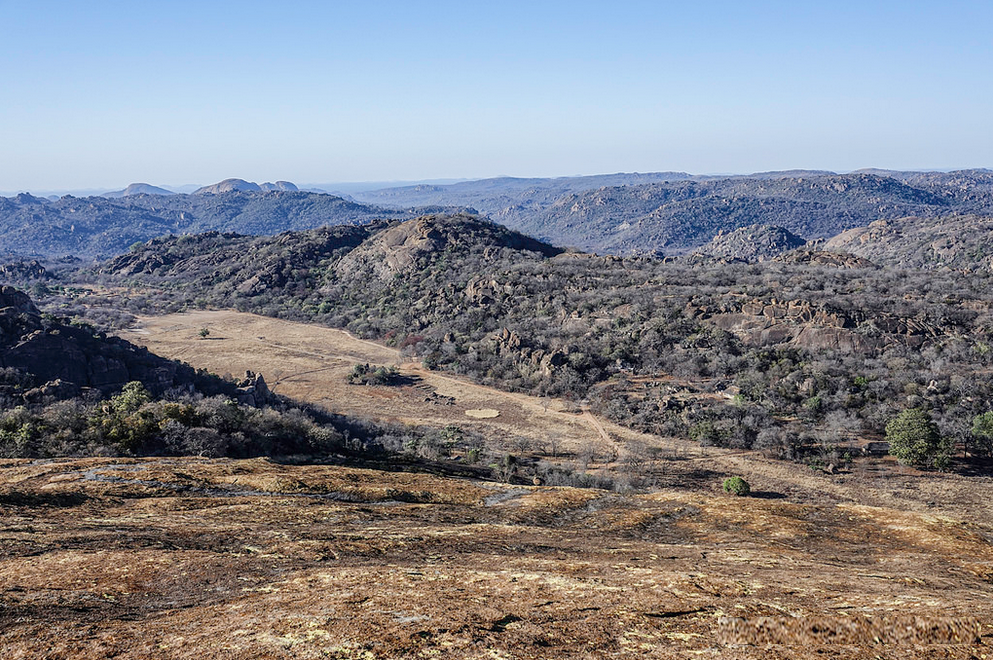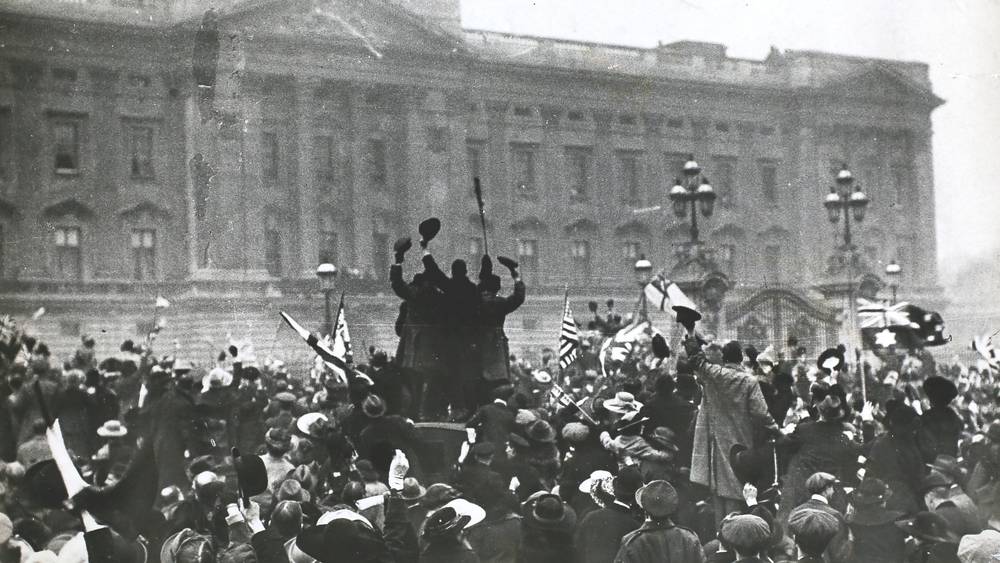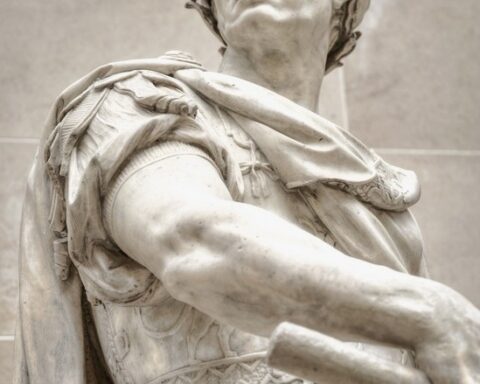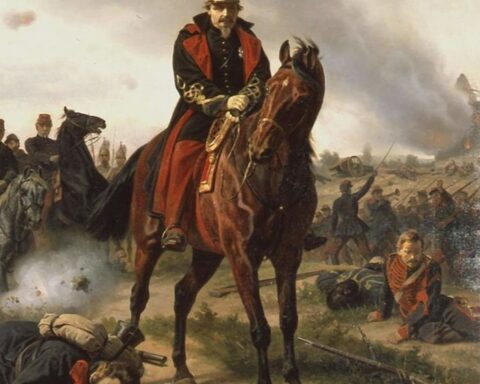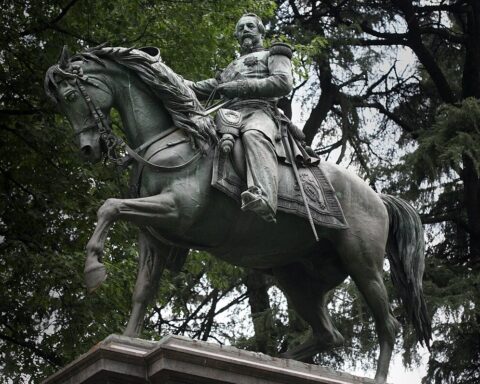Editor’s Note: The following comprises the sixteenth chapter of Sunshine and Storm in Rhodesia, by Frederick Courteney Selous (published 1896). All spelling in the original.
CHAPTER XVI
For the following narrative of what is now known as Gifford’s fight in the Shiloh Hills, I am indebted to an officer in Gifford’s Horse, who has done very good service throughout the campaign, but who however has modestly asked me not to mention his name.
“The patrol under Lieutenant-Colonel Gifford—now commonly known as the Shiloh Patrol—consisted of Gifford’s Horse, with thirty-one men of F troop under Captain Dawson, and eleven men of Grey’s Scouts under Lieutenant F. Crewe—one hundred and eighteen Europeans in all, with one Maxim gun and forty-nine Colonial Boys under Captain Bisset. Captain J. W. Lumsden accompanied the patrol as chief of the Staff and second in command.
“We left Bulawayo about one o’clock on Saturday morning, 4th April. It was bright moonlight, and we travelled on without any delay or anything exciting happening till the sun rose, when we outspanned at M’Kisa’s kraal, about twelve miles from Bulawayo. I believe we had a sort of roving commission to go down to the Khami river, break up an impi or two there, then to go over to Inyati, do the same there, and finally to come out on the Salisbury road at the Bembisi.
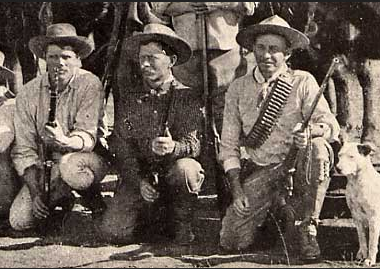
“At our first outspan however Colonel Gifford obtained information that there was an impi encamped down the Umguza, on Holm’s farm, about fourteen miles to the north of us, and he determined to have a go at them. We therefore broke camp about two o’clock and trekked on through very bad country, heavy sand and thick bush.
“We had just got into better and more open country when continuous firing was heard on our right, in which direction a few of our scouts were out, and shortly afterwards a party of two or three hundred Matabele were seen coming down from a ridge on our right, and the rear-guard—B troop, under Captain Fynn—were soon engaged with them. At this juncture Colonel Gifford sent back Captain Dawson’s troop and the Colonial Boys to support Captain Fynn, and after about an hour’s heavy firing the Matabele withdrew into the hills close by.
“In the meantime, the rest of the column had drawn out into an open space and laagered up. The scouts turned up just before the Matabele attacked, having narrowly escaped being cut off. We passed a quiet night as the enemy made no move, though we could see them in the hills, and they fired occasional shots at the laager before it got dark. Next morning we started again after breakfast, but had not gone more than a couple of miles, when the wily Matabele showed himself again, and in stronger force. Our advance guard, A troop, under Captain Meikle, were attacked, and at the same time a party of two or three hundred came down on our right and attacked the column. They did not come on very close—to do this they would have had to cross the Umguza river, and this they did not seem to care about doing, but kept on the other side of the river firing at the column and showing themselves in pretty strong force. Colonel Gifford then opened on them with the Maxim at about 600 yards, and this quite quenched their military ardour. It was funny to see the way in which they all immediately lay down in the grass and then spread out, and finally strutted off into the bush, bending down and hiding themselves as much as they could in the grass all the time.
“During this time A troop had beaten off the attack on the advance, and Captain Bisset’s boys who were on the left advance fell on the already defeated party and did some damage, killing twenty or thirty of them. As the enemy appeared to be all round us, we outspanned again, and, the men remaining at their posts, a biscuit each was served out all round, and the horses were allowed to graze. No further attack was made, and we trekked on again to Fonseca’s farm without any further hindrance from our enemy, though we could see an impi on our right keeping along with us all the way, though at a safe distance.
“We camped and laagered behind our saddles in an open glade. Behind us was a ridge of kopjes, on one of which was the homestead, on our left was thick bush, and on our right was a dry river-bed. Just beyond, and parallel to it, ran a stream in which were some deep pools of water. These riverbeds afterwards proved to be our salvation, or at any rate of great assistance in our defence.
“We passed another quiet night, and next morning, Easter Monday, at daybreak, the men made the fires and were soon brewing their coffee, as it was bitterly cold. The usual patrol of five or six men was sent out to scout round, and the Colonial Boys were sent out to look for cattle, as we had so far only had “bully” to eat, and a change was desirable. They had not been out long when Lieutenant Rorke, who was in command of the morning patrol, came across the impi holding an “indaba” in a kraal. He and his patrol opened fire on them, to which they promptly replied by rushing our men. Lieutenant Rorke had a very narrow escape; his horse broke away from him, and he was compelled to retire as best he could on foot. The Colonial Boys, who were not far behind, and his own few men, however, checked the enemy, and saved his life.
“This opened the ball; as soon as the firing was heard in camp, Colonel Gifford ordered Dawson’s troop out in support, and B troop under Captain Fynn were ordered up into the kopjes where Fonseca’s homestead stood. The battle soon became general, and there was heavy firing through the bush on our left, which was occupied by the Colonial Boys, Captains Dawson’s and Fynn’s troops. Colonel Gifford then gave the order for the men in laager to take cover in the bed of the stream to which I have already referred. The two small waggons, one of which carried ammunition, and the other our provisions, and on which the Maxim was standing on its tripod, were quickly drawn up alongside of the gully, and the men took up their positions and manned the banks of both streams, which formed a natural laager. Colonel Gifford then sent out the gallopers to call the troops in to laager, not a minute too soon. Captain Fynn’s troop, with whom was Captain Lumsden, were fairly rushed by the enemy, who poured a fire into them at close range. Here Trooper Kenneth M’Kenzie was shot through the head and dropped dead from his horse. Trooper Fielding was wounded in the leg, and his horse shot under him, and Captain Lumsden’s horse also fell shot under him. Captain Fynn, however, brought his men into laager in good order, returning the enemy’s fire. Captain Dawson and the Colonial Boys also retired in good order into laager.
“The Matabele came on close behind, and our men were hardly in laager when they rushed out into the open from the bush, with the evident intention of charging the laager. The steady fire from the men, however, soon checked them, and a few shots from the Maxim made them retire into the bush again. A few of their bravest, having taken cover behind some stumps and dead trees which were lying in the open, kept up a galling fire on the laager, but these were soon picked off by some of our good shots.
“One man, however, came on in the open and appeared to bear a charmed life, as no bullets touched him; he had no gun or assegai, but came on alone down the valley towards us. He must have got to within about 150 yards of the laager when he fell shot in the leg. He rose again, and only then turned to fly, but the charm seemed to be broken, and he fell dead, shot through with several bullets.
“In the afternoon, when we were able to go out to where he lay, we found he had in his hands a skin-bag full of fat, and some of the usual witch-doctor’s throwing bones—no arms of any sort. Apparently he was a witch-doctor, or one of the priests of the much-talked-of ‘Umlimo,’ who thought he’d do for the white man by means of his bones and incantations and that the white man’s bullets were to turn to water before him as had been predicted. The Matabele lined the bush all down our front and took to the kopjes, from where, at about 600 yards, they kept up a continuous fire.
“Colonel Gifford had all the time been standing on the waggon alongside of the Maxim directing the fire, and giving his orders to the men. The enemy on our front were not more than 200 yards away, and were making good shooting, aiming especially at the waggon and Maxim. Here poor Reynolds was mortally wounded, having been shot through the arm and lungs, and dying within a brief space. Soon afterwards Colonel Gifford was wounded in the shoulder. The men saw he had been hit; but he called out, “It’s all right, boys, don’t mind me—give it to them—give it to them.” He had soon, however, to be lifted down from the waggon and carried into the bed of the stream, at the same time calling on Captain Lumsden to take command. Troopers J. Walker (Gifford’s Horse) and Eatwell (Dawson’s) were wounded shortly afterwards.
“The fire from the enemy slackened soon after this, but they kept up a desultory fire till about twelve o’clock, when they finally drew off and left us in peace, though we could see them every now and then in the bush.
“Shortly after Colonel Gifford was wounded Captain Lumsden, after consulting the officers, sent in to Bulawayo a despatch by two of Captain Bisset’s boys on horseback, reporting that Colonel Gifford was wounded, and asking for assistance, as both ammunition and food were running short.
“As soon as the natives drew off the horses were let out to graze, and we spent the afternoon, as far as we could, strengthening our position. As the sun went down we could see smoke from what we judged to be the enemy’s camp behind the kopjes, and on the top of one of these, against the sky, we saw what was evidently their sentry carefully watching us. We passed a quiet night, and next day had a repetition of our Monday’s experience.
“After an early breakfast of one biscuit per man all round, some of the Colonial Boys were sent up on to the kopjes to see where our enemy had got to. This was soon very evident, as the Matabele came up from beyond the kopjes and chased our boys down and back into camp. They came out into the open again exactly as on the previous day, but this time from the kopje side. The fire from our men soon checked them and drove them back into the bush, and they then spread right round us and opened fire from every side. Captain Lumsden was wounded in the leg while walking about the laager, giving orders and directing the Maxim, and immediately carried down into the donga, which was our place of safety. Captain Bisset then took command. Lieutenant Hulbert was soon afterwards wounded in the leg by a Lee-Metford bullet. After keeping up a desultory fire till about mid-day, the enemy again retired, as we afterwards found out having had quite enough of the white men in the dongas. In the afternoon some of B troop and the Colonial Boys went out and recovered poor M’Kenzie’s body, which was lying where he fell. Both he and Corporal Reynolds were buried by their comrades in the centre of our laager, between the two dongas.
“At about two o’clock a despatch-rider arrived from Captain Macfarlane, who, with the relief column, was about five miles off.
“Captain Macfarlane’s column arrived soon afterwards, and we were very glad to see them, as provisions were running short. We had about a biscuit per man and seven tins of bully beef left, and not too much ammunition for another fight. Our troubles were then over, except for our poor wounded.
“We broke laager next morning, and carried them off on the waggons as carefully as we could into town, arriving in Bulawayo that night (Wednesday), late. It was, however, a long weary journey for them, twenty-two miles over the stumps and stones of a South African road. Captain Lumsden died next day in hospital, to the universal regret of all who had met him and served under him. Our own brave Colonel had to lose his arm, so our leaders suffered severely. Certainly they by their coolness and daring behaviour inspired confidence in their men, and helped to keep the fire steady. That the firing of our men was exceptionally steady there is no doubt. After the first rush it was impossible for a Matabele to show himself without receiving three or four bullets most uncomfortably near him, if he did not receive his quietus. It was estimated that the patrol killed at lowest 200 of the enemy, and many more must have been wounded. The Maxim did not have much chance, as after the first rush the Matabele spread themselves out in the bush, and kept under very good cover, and it then became a matter of sharpshooting. On the Monday, and the last day’s fight, the enemy must have been about 1500 strong. As we could see, they increased every day, and we afterwards heard from native reports that reinforcements were joining them all the time. We also heard that after the failure of the last attack the impi retired and sent round the country for still further reinforcements. When they arrived and the impis came back to the scene of their flight, they found the dongas empty—the white men had gone.”

